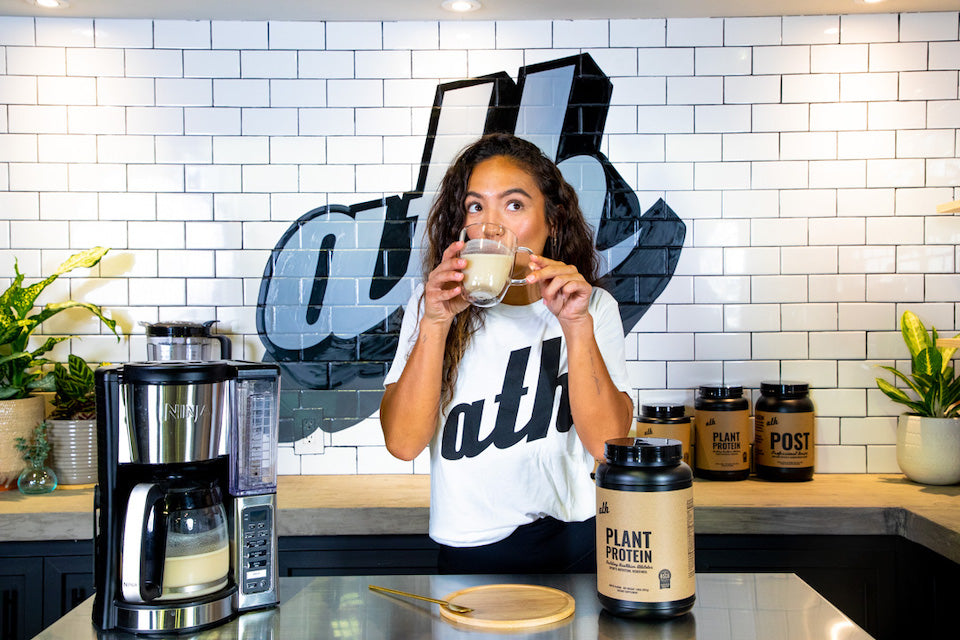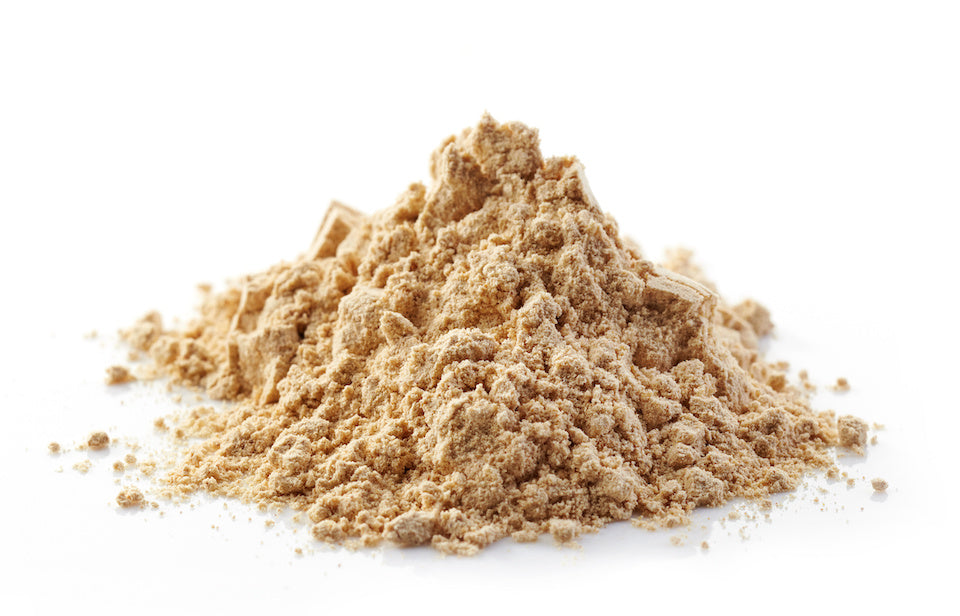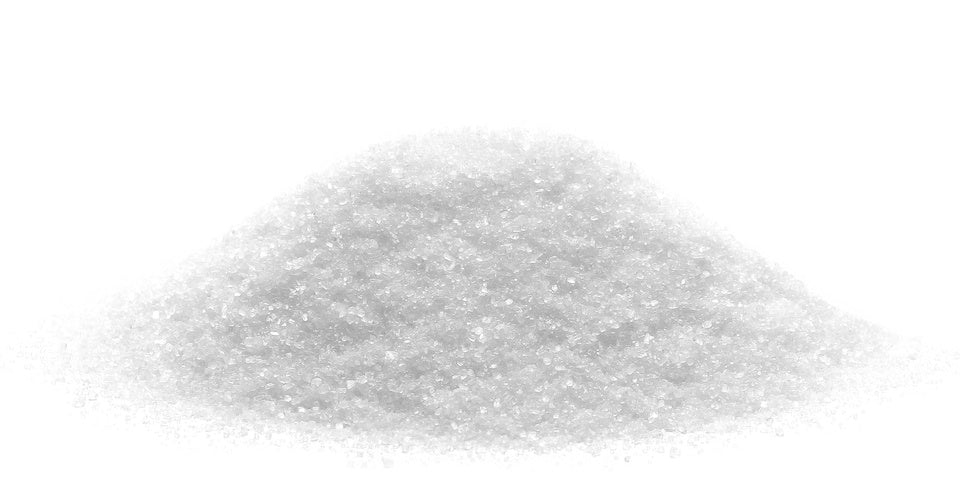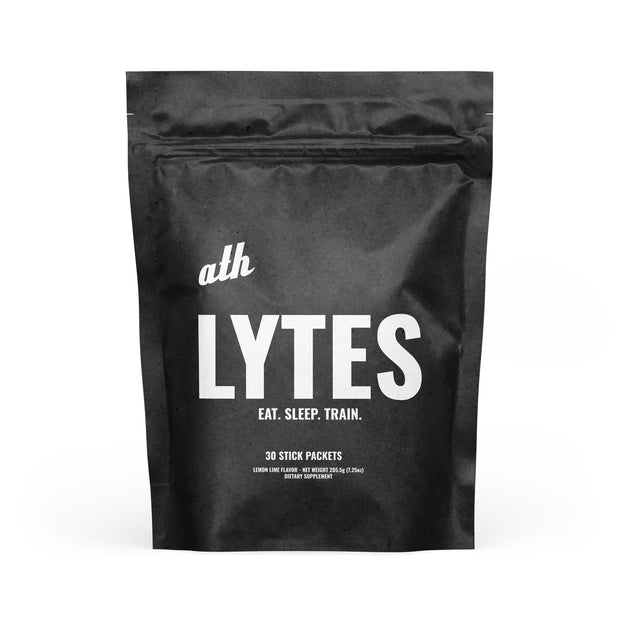Our editorial team is made up of subject matter experts with extensive, real-world clinical experience who are highly trained in evaluating clinical research. Read more about our editorial policy here.
Monk Fruit vs Stevia: What's the Cleaner Option?

Health conscious consumers are on the rise and the number one thing they're looking for is CLEAN.
Clean ingredients, formulas, and labels are the current fad - so let's take a look at sweeteners.
Monk fruit and stevia are amongst the top two natural sweeteners, but there are key differences between the two.
BONUS: We also talk about the absolute WORST sweeteners that you should eliminate from your diet.
KEY TAKEAWAYS:
- Monk fruit and Stevia are all-natural, plant-based sweeteners.
- Studies show that Stevia, when used in exorbitant amounts, has potential drawbacks.
- Monk fruit has zero known side effects.
- Monk fruit has a milder sweetness when compared to stevia.
- Artificial sweeteners may lead to weight gain and other potential health issues.
MONK FRUIT AND STEVIA ARE NATURAL SWEETENERS, BUT WHAT DOES THAT MEAN?
Natural sweeteners are made from a variety of trees, plants, and fruits and commonly used to naturally sweeten goods.
Some sweeteners like honey and dates have nutritional value, while others like stevia and don't.
Here's a quick list of natural sweeteners and their features:
| TYPE | FEATURES |
| Honey | High calories, high carb |
| Dates | High calorie, high carb |
| Coconut Sugar | High calorie, high carb |
| Stevia | 0 calorie, 0 sugar, 0 carb |
| Monk Fruit | 0 calorie, 0 sugar, 0 carb |
Some natural sweeteners — such as honey and dates — are rich in carbohydrates and calories, while others, like monk fruit and stevia, are virtually calorie-free.
Stevia and monk fruit are called nonnutritive sweeteners because they give foods a sweet taste without adding calories, sugar, or carbohydrates.
While the two share similar properties, they have a few key differences.
Below, we’ll dive into the details of each to determine which option is better.
THE BENEFITS OF MONK FRUIT AND WHAT IT IS...

Monk Fruit in Powder Form
Now that we've covered stevia, let’s explore what monk fruit is, along with its pros and cons.
WHAT IS MONK FRUIT?
Monk fruit, also known as luo han guo or “Buddha fruit,” is a small, round fruit native to Southern China.
While the fruit has been used for centuries in traditional Chinese medicine, monk fruit sweeteners did not earn GRAS status in the United States until 2010.
Monk fruit sweeteners are made by removing the seeds and skin of fresh monk fruit, crushing it, and then extracting its sweet portions into liquid and powdered forms.
Unlike most fruits that get their sweetness from glucose and fructose, monk fruit’s sweetness primarily comes from antioxidants called mogrosides.
During processing, mogrosides are extracted, producing a sweetener free of fructose and glucose.
Monk fruit sweeteners are 250 times sweeter than table sugar. They are commonly used in supplements, as well as food and beverages, including juices, soft drinks, candies, and desserts.
MONK FRUIT PROS
- 0 calories, 0 carbs, 0 sugar
- Do not cause an increase in blood sugar levels.
- Research suggests it may have health benefits, including anti-tumor, anti-diabetic, and anti-inflammatory properties.
- Many people find monk fruit sweeteners to have a fruity taste and describe it as less bitter than stevia.
- Monk fruit extracts are versatile and can be used to sweeten beverages, baked goods, smoothies, and coffee.
MONK FRUIT CONS
As of now, there is no data showing risks associated with monk fruit consumption.
It's worth noting, however, that research on monk fruit extract is still limited due to it being a relatively new sweetener.
Furthermore, the sweetener does have a few non-health-related drawbacks
These include:
- Monk fruit sweeteners tend to be pricier than many other types of sweeteners.
- Some monk fruit sweeteners contain additives, like dextrose and sugar alcohols, which degrade the quality. Make sure to read the labels and opt for products that use pure monk fruit extract and zero additives.
Although rare, individuals allergic to pumpkin, squash, cucumbers, melon, or other members of the Cucurbitaceae family may react to monk fruit.
THE DISADVANTAGES OF STEVIA AND WHAT IT IS...
Stevia in Powder Form
Here’s the low down on stevia, including its benefits, potential drawbacks, and why some people are skipping out on it.
WHAT IS STEVIA?
Shortcuts:
- Natural sugar substitute
- From the Stevia rebaudiana plant
- Stevia glycosides have GRAS status
Stevia is a natural sugar substitute derived from the leaves of the Stevia rebaudiana plant, which is native to South America and belongs to the Asteraceae family.
Stevia is 200 to 400 times sweeter than table sugar yet free of calories, carbohydrates, and sugar.
Back in 2008, the FDA granted Generally Recognized as Safe (GRAS) status to highly purified steviol glycosides, the sweet compounds found in the stevia plant. Basically, this means that it is safe to use as a sweetener in reduced-calorie foods and beverages in the United States.
There are several types of steviol glycosides, including Rebaudioside A (Reb A), Stevioside, and Rebaudioside D.
Manufacturers usually do not specify the specific type of steviol glycosides used on the label. Instead, you'll typically just see words like "stevia leaf extract," "stevia powder," or "stevia liquid."
Although they have been used for centuries as a sweetener, crude stevia extracts and whole stevia leaf are not considered GRAS due to insufficient research.
STEVIA PROS
- Stevia sweeteners can add sweetness to food and beverages without extra calories.
- They are heat stable and can be used in a variety of foods and beverages, including coffee, tea, baked goods, and other dishes.
- Stevia generally does not raise blood sugar levels, making it a good option for those with diabetes.
- Some research suggests stevia extracts may have anti-obesity, antioxidant, anti-hypertensive, anti-diabetic, anti-cancer, anti-inflammatory, and antimicrobial effects.
- They’re vegan-friendly.
STEVIA CONS
Just like anything, when taken in high amounts, Stevia does have a few drawbacks.
One study revealed that 1.8mg per pound of body weight was acceptable for daily consumption. Let's say you weigh 150 lbs - your upper limit for stevia would be 270mg per day. Consistently consuming more than your upper limit could result in potential drawbacks.
These drawbacks include:
- High amounts of stevia may add a bitter/unpleasant taste.
- Stevia, from sugar alcohols, can cause gut irritations in some individuals.
- Stevia may affect the endocrine system and could potentially disrupt the gut microbiome.
- Stevia may cause allergic reactions.
- Stevia can interact with certain medications.
SO, WHAT'S ALL THE FUSS ABOUT?
Many people avoid stevia simply because it tends to leave a bitter aftertaste in their mouth. This is because stevia contains chemical compounds known to interact with both the sweet and bitter taste receptors.
Additionally, the majority of stevia products undergo significant processing and are blended with other sweeteners, such as sugar alcohols. While considered safe, sugar alcohols may cause bloating, abdominal discomfort, and diarrhea.
Read labels to avoid this. Make sure stevia products that you consume do not have sugar alcohols listed.
Furthermore, some studies suggest that stevia may act as an endocrine disruptor and interfere with hormones, as well as negatively influence the gut microbiome.
One 2016 study found that human sperm cells exposed to steviol experienced an increase in progesterone production.
A 2022 review of 14 studies found that four indicated harmful effects on the gut microbiota, while the other studies found a positive or neutral effect.
More research is needed to determine the impact of stevia on gut health as well as its potential to act as an endocrine disruptor.
Although rare, stevia may cause allergic reactions in people allergic to plants from the Asteraceae family, such as ragweed, daisies, and sunflowers.
There is also some evidence that stevia may cause gas, bloating, nausea, and dizziness in sensitive individuals.
Lastly, individuals who take blood pressure or diabetes medications should be cautious when using stevia, as combining them may cause an unsafe drop in blood pressure and blood sugar.
THE VERDICT: MONK FRUIT OR STEVIA
While both are good alternatives to artificial sweeteners, monk fruit is often considered the superior choice due to its mild flavor and lack of studies indicating any potential side effects.
However, using stevia in moderation is perfectly fine, especially if you don't have any sensitivity to it.
NOW, THE WORST SWEETENERS AND SUGAR ALTERNATIVES TO AVOID
Our take - avoid these at all costs.
- Sucralose
- Aspartame
- ACE K
- Saccharin
- Xylitol
SUCRALOSE
Sucralose = Artificial
Sucralose is a zero-calorie artificial sweetener that generally comes in a yellow packet. It is made from sugar through a multistep chemical process that substitutes 3 chloride atoms for 3 hydroxyl groups on the sucrose molecule.
Sucralose is 600 TIMES sweeter than table sugar and is commonly used in protein powders, diet sodas, chewing gum, baked goods, and more.
Although the sweetener is approved by the FDA, several studies have linked it to health problems.
For example, sucralose may reduce insulin sensitivity and increase blood sugar and insulin levels. There is also evidence that sucralose may negatively alter the gut microbiome.
In addition, sucralose can disintegrate when cooking or baking at high temperatures, generating potentially toxic compounds.
It is important to note that we need additional human studies to confirm the long-term health risks of sucralose consumption.
ASPARTAME
Aspartame = Artificial
Aspartame is an artificial sweetener made from the amino acids phenylalanine and aspartic acid. It is around 200 times sweeter than table sugar and comes in a blue packet.
When aspartame is consumed, your body breaks part of it down into methanol which further breaks down into formaldehyde, a known neurotoxin and carcinogen.
However, authorities have stated that the formaldehyde and methanol produced from ingesting aspartame consumption is not a safety concern. It is also considered safe by the FDA, with over 100 studies supporting its effectiveness.
The sweetener hasn’t been conclusively linked with any serious health problems other than for people with phenylketonuria (PKU). Still, it understandably has faced controversy over the past few years.
According to one 2021 review, some degree of research has linked aspartame to the following conditions:
- Diabetes
- Obesity
- Insulin resistance
- Gut microbiota changes
- Premature birth
- Early first menstruation in young girls
- Mood disorders
- Certain types of cancer
However, some studies have shown no correlation between aspartame and many of the mentioned health conditions.
Given the inconsistency in current studies, additional well-designed human studies are needed to confirm these findings.
ACE K
Ace-K = Artificial/Synthetic
Ace-K, also known as Acesulfame-K or Acesulfame potassium, is a synthetic zero-calorie sweetener that is around 200 times sweeter than table sugar. It's made by combining potassium and acetoacetic acid and is often blended in with sucralose or aspartame.
Ace-K is found in many sugar-free products, including soft drinks, ice cream, milk products, breakfast cereals, and more.
Despite being considered safe by the FDA since 1988, many researchers believe the sweetener may be harmful.
Ace-K has been linked to cancer, premature delivery, neurological disruptions, weight gain, and microbiome disruption.
SACCHARIN
Saccharin = Artificial and Cheap
Saccharin is a low-calorie artificial sweetener 300-400 times sweeter than sugar. As one of the cheapest sugar substitutes, saccharin is often present in baked goods, canned fruit, dessert toppings, chewing gum, and vitamin and mineral supplements.
Sodium saccharin is commonly found in artificial sweeteners, although many people find it to have a bitter, metallic aftertaste.
Recent rodent studies have shown that long-term saccharin consumption may increase the risk of obesity and diabetes, as well as liver and kidney impairment.
There is also evidence that saccharin may negatively impact the bacterial balance in the human gut.
XYLITOL
Xylitol = Sugar Alcohol
Xylitol is a sugar alcohol naturally present in many fruits and vegetables. It can also be commercially produced from corn cob and birch bark.
Xylitol is commonly found in sugar-free chewing gum, candies, mints, and oral-care products.
It looks and tastes similar to regular sugar yet has around 40% fewer calories. Xylitol also doesn’t typically raise your blood sugar as much as sugar.
While xylitol is FDA-approved for use as a sweetener and food additive, it can produce unwanted side effects. These include stomach cramps, irritable bowel syndrome, diarrhea, and kidney stones when consumed in high amounts.
TL;DR
MONK FRUIT:
- Natural
- Zero calorie
- More expensive
- Neutral flavor
- No known side effects
STEVIA:
- Natural
- Zero calorie
- Bitter aftertaste (when used in high amounts)
- May cause GI issues in some individuals (when used in high amounts)
Both stevia and monk fruit are zero-calorie natural sweeteners that can be used as a substitute for sugar and artificial sweeteners. While both share similar properties, stevia can leave a bitter aftertaste and may cause digestive symptoms.
There’s also limited evidence that stevia may interfere with the endocrine system and gut microbiome. However, studies are limited, and we need more human studies before drawing definitive conclusions.
Monk fruit has a slight advantage over stevia as it has a more neutral taste and no reported side effects. However, it is pricier and not as readily available.
Ultimately, it comes down to taste and tolerance. Choose the natural sweetener that best fits your taste preferences and dietary requirements.
FREQUENTLY ASKED QUESTIONS
IS MONK FRUIT BETTER THAN STEVIA?
While both are natural zero-calorie sweeteners, monk fruit offers several advantages over stevia. Unlike stevia, which can have a bitter aftertaste that some people find unpleasant, monk fruit provides a clean, sweet taste that more closely resembles sugar. Additionally, monk fruit extract contains powerful antioxidants called mogrosides, which may have anti-inflammatory properties, while stevia doesn't offer these potential health benefits.
DOES MONK FRUIT BREAK A FAST?
Pure monk fruit sweetener has zero calories and doesn't trigger insulin production, making it safe to consume during a fast.
When using monk fruit products, it's crucial to check labels since some contain added ingredients like dextrose that could break your fast.
WHAT DOES MONK FRUIT TASTE LIKE?
Monk fruit sweetener has a clean, sugar-like sweetness without the bitter aftertaste common in other natural sweeteners. While about 150-200 times sweeter than sugar, it provides a remarkably natural sweetness that doesn't have the artificial or chemical taste often found in synthetic sweeteners.
IS STEVIA BAD FOR YOU?
Although FDA-approved, stevia can cause digestive problems, headaches, and has an unpleasant bitter aftertaste. Research indicates it may disrupt gut bacteria and affect blood pressure levels. Most commercial stevia products undergo heavy processing and contain artificial additives, making them far from the natural sweetener they claim to be.
DOES STEVIA BREAK A FAST?
Pure stevia extract has zero calories and doesn't trigger insulin, making it technically safe during fasting. However, some commercial stevia contains dextrose or maltodextrin which can break a fast. Always check your labels.
WHAT DOES STEVIA TASTE LIKE?
Stevia has an intensely sweet taste that's 200-350 times sweeter than sugar, with a noticeable bitter aftertaste that many find unpleasant. Some people detect a metallic or licorice-like undertone that lingers on the tongue. While it can sweeten beverages and foods, its distinct taste profile makes it difficult to use as a direct sugar replacement for some individuals.
RELATED
Blog: Types of Salt: Minimally to Most Processed
Blog: What is Maltodextrin?
Blog: What is Citric Acid?



